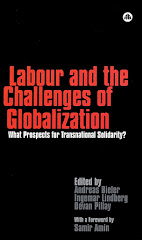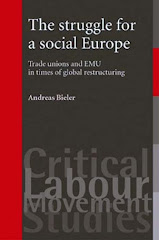While the Syriza government had to submit to the dictate of the European Union in July 2015, the concrete resistance against austerity has continued unabated on the ground in Greece. In this blog post I will discuss the experiences of the social clinic Solidarity Community Clinic – Pharmacy of Drama (KIFA) in Drama and its recent efforts at helping refugees living in a camp close to town. I will draw on experiences and discussions with activists from a recent visit to this city in Northern Greece.
Solidarity as a
basis for resistance
Since
its establishment in 2012, the social clinic in Drama has assisted over 800
patients, who would have otherwise been unable to access medical health
services. This was in direct response to severe austerity policies, which had
pushed people outside the public health system. The clinic, located in the
centre of town, consists of a small reception area, a room for consultations
with the doctor as well as another room storing large amounts of medication
donated by the wider public. All staff from the receptionists to the doctors
are volunteers. In addition to the general practitioners present at the clinic,
specialist doctors are at stand-by having agreed to treat a certain number of
patients per month free of charge.
 |
| Social Clinic, Drama - Photo by Cecilia Goria |
And
yet, as Angelos one of the activists made clear, providing medical services and
handing out medicine is not the main objective. Ultimately, the social clinic
is a deeply political project with an emphasis on mobilising against austerity
through solidarity. Its task is to organise resistance to the government and
system, which is responsible for the situation.
The
hopes in Syriza have vanished since the imposition of yet another bailout
agreement in July 2015. The party has never been as far on the left, as it was
perceived by foreign commentators, I was told. In its move towards the majority
party in Greek parliamentary politics, it had to make many alliances with
groups in the centre of politics. While poorer people find it now easier to
access doctors and hospitals thanks to Syriza, the costs for medication has
gone up. In short, on balance, there have been no major improvements. Activists
in the social clinic, while disappointed, were not completely surprised.
Solidarity and
the refugee crisis
More
recently, the attention of the social clinic has turned towards the ca. 450
refugees housed in an abandoned factory building outside Drama. The situation
in the camp is difficult. Many different people are brought together in a confined
space. There is basic provision of water, food and shelter, but people are
haunted by general uncertainty about their future. Many want to move to Germany
and other countries in Northern Europe, but the Northern borders of Greece with
Macedonia have now been closed.
 |
| Refugee camp, Drama - Photo by Cecilia Goria |
It
is in this situation of hopelessness that members of the social clinic provide
assistance and solidarity. Food and clothes supplies are organised, as are
language classes in Greek, English and German for children as well as adults.
During my days in drama, activists organised an open air concert for refugees
and local citizens alike. Solidarity with refugees is not automatic. In Greece
too as elsewhere in Europe, there are people questioning why they should share
their already scarce resources with newcomers.
 |
| Refugee camp, Drama - Photo by Social Clinic |
And
yet, the refugee crisis is nothing new, nothing unknown to people in Northern
Greece. The grandparents of many of Drama’s citizens today have been refugees
themselves as part of the large exchange of
populations between Turkey and Greece in 1923, when around 1.3 million Anatolian Greeks and
500,000 Muslims in Greece were forced to leave their homeland. This history
is still remembered. Dances of local groups are predominantly from an area
around the Black Sea, where many Greek people used to live in the past. As
Dimitra, one of the activists told us, ‘the refugees show us our past and the
fate of our grandparents, but perhaps also our future. What has happened to
these people from Syria, unimaginable several years ago, could happen to us in
the future too’.
 |
| Refugee camp, Drama - Photo by Social Clinic |
Both
initiatives the social clinic and providing assistance to refugees are driven
by solidarity. ‘Solidarity that, contrary to charity, respects and empathizes
with the Other. Solidarity that, instead of showing off in the news, is working
silently and persistently. Solidarity that, rather than presenting the human
face of barbarism, is deeply conscious about the reasons behind immigrants’ and
refugees’ existence and is struggling against them’ (Utopia 500). Importantly,
solidarity is always the result of joint struggles, ‘the result of active
struggle to construct the universal on the basis of particulars/differences’ (Mohanty 2003: 7).
Solidarity ‘is expressed in a willingness to stand up for each
other and fight together’ (Lindberg,
2014: 136).
 |
| Refugee camp, Drama - Photo by Social Clinic |
It
is the collective activities of social clinic activists together with Greek
people thrown into poverty as well as Syrian refugees, in which this solidarity
is forged. While people across the EU agonise over whether to help refugees and
admit them or not, the people of Drama show us the way forward based on
solidarity.
Prof. Andreas Bieler
Professor of Political Economy
University of Nottingham/UK
Andreas.Bieler@nottingham.ac.uk
Personal website: http://andreasbieler.net
8 May 2016














No comments:
Post a Comment
Comments welcome!